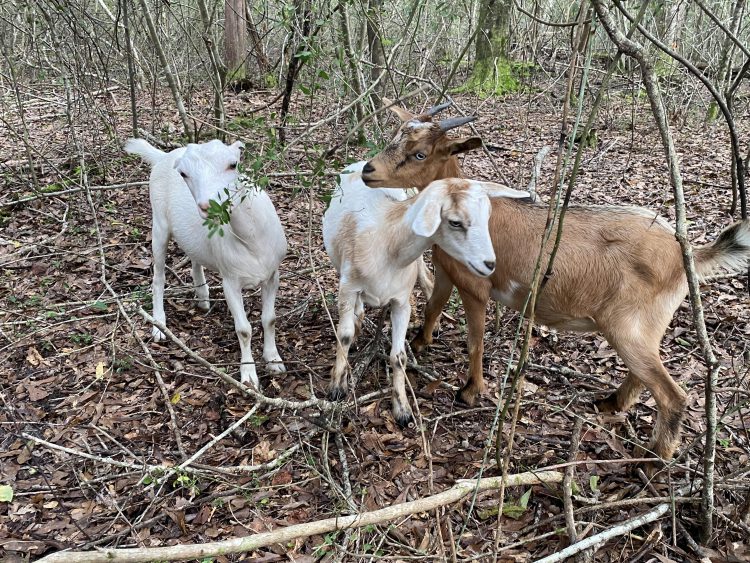Full Title: The potential for conservation grazing in coastal uplands
This project will develop a research plan to address conservation grazing, or the use of livestock as an alternative or complementary habitat management strategy, in coastal uplands of the northern Gulf of Mexico.

Lead Investigator: Eric Sparks, Mississippi State University and Mississippi-Alabama Sea Grant Consortium, eric.sparks@msstate.edu
Natural Resource Manager: Jonathan Pitchford, Mississippi Department of Marine Resources and Grand Bay National Estuarine Research Reserve
Project Team: Cassy Porter and Margo Posten (Grand Bay NERR); Katie Swanson and Sarah Cunningham (Mission Aransas NERR); Eric Brunden and Michael Shelton (Weeks Bay NERR); Caitlin Synder (Apalachicola NERR); and Timothy Schauwecker (Mississippi State University)
Federal Program Officer/Point of Contact: Frank Parker (frank.parker@noaa.gov)
Award Amount: $130,200
Award Period: This project began in September 2021 and will end in August 2023.
Why it matters: Current coastal upland restoration techniques utilized across coastal uplands include combinations of prescribed fire, chemical treatments, and mechanical removal. Each technique is associated with different levels of costs, intrusiveness, ecological damage, logistical constraints, and limitations that can be influenced by climate change. A potential alternative, complementary, and less intrusive technique is conservation grazing, or the use of livestock for habitat management. This project will assess the when, where, and how to implement conservation grazing into land management programs throughout the U.S. Gulf Coast.
What the team is doing: This project will develop and administer a survey focused on logistical considerations and research needs for conservation grazing and host a workshop in Texas, Mississippi, Alabama, and Florida for selected end-users to identify specific research questions and considerations for conservation grazing.
Expected outcome: End-user input will be integrated into the publication of a publicly accessible plan that outlines the research questions, logistical considerations, and methodologies for conservation grazing along the U.S. Gulf Coast.
Other Resources
Coming soon
Coming soon
Coming Soon
Coming Soon
 Official websites use.gov
A .gov website belongs to an official government organization in the United States.
Official websites use.gov
A .gov website belongs to an official government organization in the United States.
 Secure .gov websites use HTTPS
A lock or https:// means you’ve safely connected to the .gov website. Share sensitive information only on official, secure websites.
Secure .gov websites use HTTPS
A lock or https:// means you’ve safely connected to the .gov website. Share sensitive information only on official, secure websites.